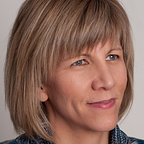Stories: Connection, healing, hope
Why Stories?
Experiencing things that may be traumatic can interrupt our connection with others and our sense of control.
“Trauma is when experiences overwhelm our ordinary responses that give us a sense of control, connection, and meaning.” Judith Herman
Working with stories is a powerful tool focusing on strengths that helps develop connection, support healing and resilience, and provide hope.
- Stories help modulate our nervous systems and our outlook, making it possible for us to engage in the work of supporting healing and creating more trauma-informed systems with compassion and resilience.
- Being listened to and hearing back our stories makes us more visible, we feel seen and acknowledged.
- Stories support people to bring their whole selves to this work, acknowledging each other’s humanity and learning from each other.
- Strengths and resilience become apparent through stories, surfacing what we often don’t recognize in ourselves and others.
- Stories can foster a sense of personal and collective agency.
- Stories become a tool to support our practice, integrating learning into what we do in our work and lives that bring trauma-informed principles to life in a real and concrete way.
Generating new possibilities
The work of creating trauma-informed systems is complex. Focusing on what is working well opens possibilities. One of the ways we can do this is through stories.
Nelson Mandela said, “It always seems impossible until it is done”.
Stories make change visible by showing the small steps we are taking that makes organizational and systems change more possible.
The stories that we tell are at the heart of new possibilities.
Within our conversations are stories that people may have heard many times. These discourses originate in our relationships and conversations. Language in these stories is often used to embody the social norms and taken-for-granted assumptions and understandings about how things are in the world.
These ongoing conversations create certain relational practices and patterns. This plays an important role in defining power, how we relate to one another, and the norms and culture that inform our lives. The resulting circular process often seals off other possibilities, particularly when certain voices are privileged and others are left out.
We create possibilities when we disrupt discourses that may be problematic. We can do this by bringing in more voices and alternative stories to create new conversations and explore new meaning and generative possibilities.
We can start by asking ourselves: “What kind of stories do we want to tell? What do we want to learn? What do we want to do with this learning?” Progress-focused stories are based upon a belief that change is achieved by people drawing on their resources and invites us to notice and name our strengths.
We don’t ignore problems or issues, rather we acknowledge our learning in the face of challenges as resources for our shared journey. Progress-focused stories concentrate on what is already being done, the progress moving us in the direction of a preferred future. They motivate and inspire us to take further action.
Creating “our” stories
“Me” stories are an essential piece of a larger mosaic of shared narratives — “our” stories — connecting “me” stories to a collective issue. In a healthy community, this mosaic helps bring a sense of belonging, understanding, and plurality. Sharing collective experiences is a form of social engagement and a catalyst for social action.
Acknowledgments
Digital Storytelling: Capturing Lives, Creating Community
Haesun Moon, University of Toronto Canadian Centre for Brief Coaching
John Winslade and Gerald Monk — Narrative Mediation: A New Approach to Conflict Resolution
Transformative Storytelling through Collective Approaches — https://www.transformativestory.org
Participatory Narrative Inquiry, Stephen Shimshock
Working with Stories, Cynthia Kurtz
